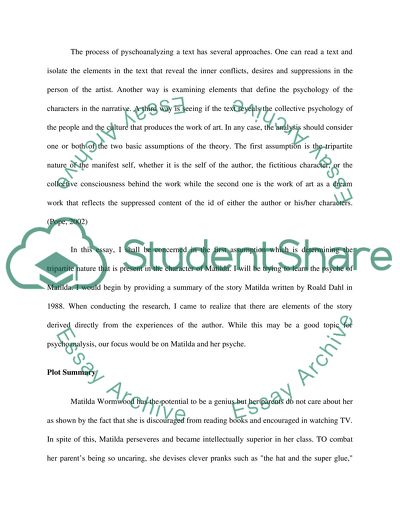Cite this document
(“Psychoanalysis of Roald Dahl's Matilda Essay Example | Topics and Well Written Essays - 2250 words”, n.d.)
Retrieved from https://studentshare.org/miscellaneous/1509963-psychoanalysis-of-roald-dahls-matilda
Retrieved from https://studentshare.org/miscellaneous/1509963-psychoanalysis-of-roald-dahls-matilda
(Psychoanalysis of Roald Dahl'S Matilda Essay Example | Topics and Well Written Essays - 2250 Words)
https://studentshare.org/miscellaneous/1509963-psychoanalysis-of-roald-dahls-matilda.
https://studentshare.org/miscellaneous/1509963-psychoanalysis-of-roald-dahls-matilda.
“Psychoanalysis of Roald Dahl'S Matilda Essay Example | Topics and Well Written Essays - 2250 Words”, n.d. https://studentshare.org/miscellaneous/1509963-psychoanalysis-of-roald-dahls-matilda.


